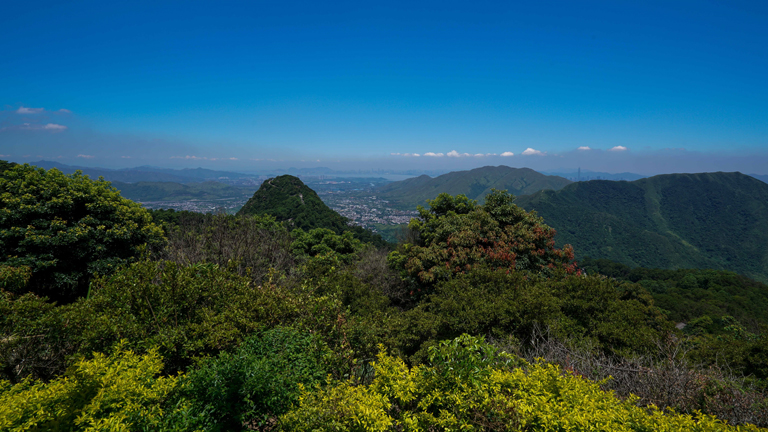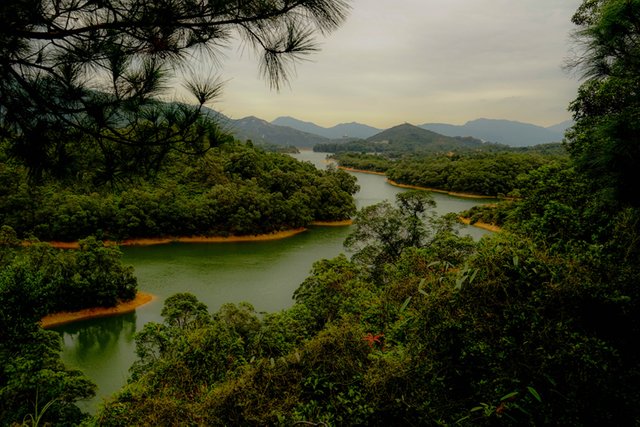Cities also need forests: a call for forests between our particular jungles.

More than half the world’s population lives in cities, and that’s set to rise to two-thirds – more than 6 billion people – by 2050. Yet we still depend on forests more than we think.
Having wild places around is critical, not just for nature but also for people. A wealth of studies have shown that cities with plenty of trees feel like healthier, happier places than those without.
While deforestation has many drivers, one underlying challenge is that society doesn’t value forests enough. That’s something we can – and need to – change as individuals and as a collective. It starts with spending time in forests, connecting with nature, and showing that we care.
This post is a commentary. The views expressed are those of the author, not necessarily Mongabay.
Human beings evolved among trees. Even today, hundreds of millions of people live in and around forests, and depend upon them directly for their food, fuel, and livelihoods.
Many of us, however, now live in concrete jungles instead. More than half the world’s population lives in cities, and that’s set to rise to two-thirds — more than 6 billion people — by 2050.
Yet we still depend on forests more than we think. Take Hong Kong, where I live, for example. It’s the very picture of a modern metropolis, and one of the most densely populated regions on Earth. Step back from the skyscrapers and the bustling streets, though, and nearly a quarter of Hong Kong is forested.
Hong Kong’s forests were once home to a vast range of species, including elephants and tigers. But over the centuries, large areas were cleared, and most of the remaining trees were felled for fuel during the Second World War.
Over the last half-century, however, forests have been making a comeback through active replanting and natural regeneration. Protected parks cover around 40 per cent of Hong Kong’s territory today, and, while there are no plans to reintroduce tigers, these parks harbor incredible biodiversity: more than 2,100 native plants, 50 species of mammals, over 500 species of birds, and 230 different butterflies.
For a city of more than 7 million inhabitants, having these wild places around is critical, not just for nature but also for people. A wealth of research has shown that cities with plenty of trees feel like healthier, happier places than those without.

As air pollution emerges as a major global health risk, urban trees can be highly effective filters, removing harmful pollutants and particulates from the air. They also shield us against noise pollution, which can have significant physiological and psychological impacts.
Hong Kong, like many major cities, also depends on its forests for its water supply. Forests are like giant sponges that soak up rainfall and release it slowly, keeping reservoirs recharged while also reducing the risk of flooding.
In addition to mitigating global climate change by storing carbon, trees help to control local temperatures, as well. As climate change brings more extreme heatwaves, urban “heat islands” are an increasing problem. Strategically placed trees in cities not only provide much-needed shade, but can also affect the local micro-climate — they have been shown to cool the air by as much as 8°C, and reduce air conditioning use by 30 percent.
But having access to forests and other green spaces also benefits us on a much more personal level. Most days, I take my dog for a walk in the forest and feel re-energized by the experience. It’s not just about the physical exercise: getting out into nature is the best way of mentally recharging your batteries.
The Japanese concept of shinrin-yoku (“forest bathing”) recognizes all of these benefits for humanity, and it is now taking off in other countries as urban dwellers seek to reconnect with nature. Forest bathing is about immersing yourself in the sights, sounds, and sensations of the forest — and a growing body of evidence suggests it has multiple health benefits, such as reducing stress, reducing blood pressure, and boosting the immune system.
Around the world, we are losing millions of trees every day. Even here in Hong Kong, development continues to chip away at forests and other natural areas — a phenomenon WWF and many local organizations are working hard to prevent.
While deforestation has many drivers, one underlying challenge is that society doesn’t value forests enough. That’s something we can — and need to — change as individuals and as a collective. It starts with spending time in forests, connecting with nature, and showing that we care.
To celebrate International Day of Forests today and Earth Hour on Saturday, I urge you to take the first step. Connect to forests — go down to the woods. Take a walk. Take the kids or the dog. Take a forest bath. Take a moment to breathe deeper.
Alistair Monument leads WWF’s Forest Practice. He is a qualified forester and auditor with 25 years of experience in over 40 countries, from multi-stakeholder initiatives, ethical certification, and conservation, to workers’ rights, ethical finance, and strategic program development. Alistair was previously the Asia Pacific Director at the Forest Stewardship Council (FSC) and was the founding Director of Accreditation Services International, FSC’s accreditation agency and FSC’s Asia Pacific Regional Office.
Beautiful photos 💚
I totally agree with all that you have said.
If more people would take a break from the concrete jungle and just be in nature, the world would be a happier place.
good post
its looks like rangamati. nice place
wow good bro
For healthy living we need a lot of amount of forest and we keep our forest for our next generation.
Good job brother....
It's looks like Amazon....
basically we should increase the natural resourses but we increasing the opposite things
We should doing plantations of trees. But, we doing deforestation. This is really disappointed for us.
all type of forest aslo help our ecological balance.